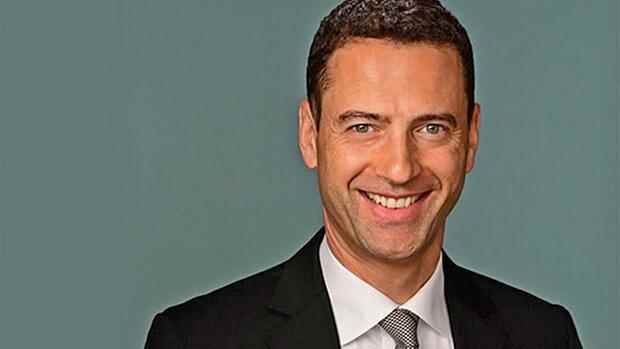Prior to his appointment as CEO, he led Glencore’s coal business.
(Photo: PR)
Zurich It was the first attack he had to endure as Glencore CEO – and Gary Nagle reacted like a diplomat. About a month ago it became known that the activist investor Bluebell Capital was demanding that the Swiss mining company spin off its coal business. Instead of brusquely rejecting the attack, Nagle was open to the proposal. If the majority of the shareholders want to spin off the coal business, the company will listen to its shareholders, he assured – knowing full well that it will not happen.
The company’s plan to gradually reduce the coal business and produce climate-neutral production by 2050 was approved by 94 percent of shareholders at the annual general meeting last April. Nagle does not have to fear an investor revolt.
But the debate about the coal business that Bluebell initiated is likely to continue in the coming year, especially because coal production is initially expected to increase by up to 20 percent in 2022. Therefore Nagle will have to explain again and again why the company he leads – unlike its competitors Rio Tinto or BHP – does not want to split off the coal business.
For Nagle the matter is clear: his strategy is a “responsible way” to deal with fossil contaminated sites. Glencore is committed to gradually reducing coal production and not fully exploiting the resources. The group then ensures that the mines are renatured. So it should be impossible for other companies to continue to exploit the mines, promises the CEO.
Top jobs of the day
Find the best jobs now and
be notified by email.
A spin-off would save Glencore’s carbon footprint, but Nagle is convinced that global greenhouse gases cannot be reduced this way. One example that confirms Nagle’s point of view is Rio Tinto’s coal exit: the mining company sold its shares in the Australian Kestrel mine to a consortium of a private equity investor and an Indonesian coal producer. The deal brought Rio Tinto $ 2.25 billion in cash and reduced carbon footprint. But this does not help the climate: The new investors signaled that they want to exploit the mine down to the last ton.
Nagle’s “responsible” handling of the fossil contaminated sites
And the recent rise in steam coal prices also seems to prove Nagle right: This ensured that energy prices in emerging countries such as India and South Africa soared and increased the risk of a supply crisis. Nagle, a native of South Africa, knows how important coal is for energy supplies in many countries. For him, securing this also falls under the “responsible” approach to fossil pollution.
The fact that the future of the coal business at Glencore is so much in the public eye also has to do with Nagle’s background: Before being appointed CEO, he headed Glencore’s coal business. Although the division recently made up hardly more than ten percent of Ebitda, it is still a management factory for the group. Ivan Glasenberg, long-time Glencore boss and architect of the modern structure as a mining and trading company, began his career as a coal trader.
Metals that are required for the energy transition are becoming increasingly important. The Swiss raw materials giant is already one of the largest copper producers in the world. The metal is used in electric cars as well as in power lines and wind turbines. In addition, Glencore dominates the market for the battery metal cobalt.
That is why the analysts at the investment bank RBC Capital Markets certify that the company has a “convincing raw materials portfolio”. Of the major commodity companies, Glencore is best positioned to generate high profits and dividends for shareholders. The experts at Goldman Sachs see it similarly: “We see Glencore in an ideal position to benefit from the demand for raw materials of the future.”
If successful, a share price at the level of 2011 beckons
In addition to the coal debate, legal legacies could at most tarnish Nagle’s first year as CEO. In the summer, a former company oil trader pleaded guilty to corruption related to oil deals in Nigeria. The US authorities and prosecutors in Switzerland, among others, are investigating further cases against Glencore.
If Nagle succeeds in the transformation, he could do what his predecessor Glasenberg never should: get the Glencore share price back towards the level of the IPO in 2011. Then the activist investors should fall silent.
More: Will the cobalt shortage be as bad as the chip crisis? There is a threat of new bottlenecks in battery metals

